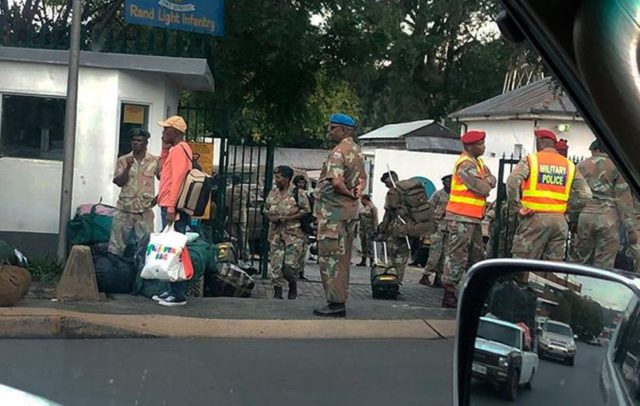
(4 minutes read)
· The three-week lockdown, which kicked off in South Africa is
affecting businesses particularly MSMEs
· Admittedly, the strict measures have been widely praised as
government took swift action to stem the outbreak, but the economic
consequences for affected businesses will likely be dire since only
essential services will be allowed to remain open
The three-week long lockdown, which kicked off in South Africa is
affecting businesses particularly the micro, small and small
enterprises (MSMEs). Small businessmen are telling that most of them
would be left with nothing if their enterprises are closed down. They
may not be able to pay salaries to the employees and meet other
business expenses, including procurement of raw materials. For a few
days, some of the companies can depend on the sale of inventories to
realize the revenues. Because of the difficult days and cash crunch,
most of the enterprises have cut down on the production due to
sluggish demand. There are defaults these small enterprises have
incurred with suppliers, logistic companies and banks, from where they
had drawn loans for their working capital and day- to-day operations.
President Cyril Ramaphosa is also on record that small businesses are
set to bear the brunt of the 21-day lockdown, when he interacted with
businesses recently. Admittedly, the strict measures have been widely
praised as government took swift action to stem the outbreak, but the
economic consequences of affected businesses will likely be severe
since only essential services will be allowed to remain open. Some
support measures have been announced by the government for those
enterprises, which have been told to shut down. But the reports
indicate that such cushion is only touching the periphery of the
actual needs of the business enterprises.
The digital companies have said that without the support of the
government, they may have to shut down the shop and restart once the
pandemic is over. In the meantime, the government is giving relief to
business enterprises from an emergency fund created -National Disaster
Benefit Fund- which is expected to dispense with R 30 billion from the
unemployment insurance fund for compensating the employees, whose
salaries have been cut due to the impact of the coronavirus. The
workers covered under the scheme will receive a R3 500 minimum wage
for three months due to the pandemic.






